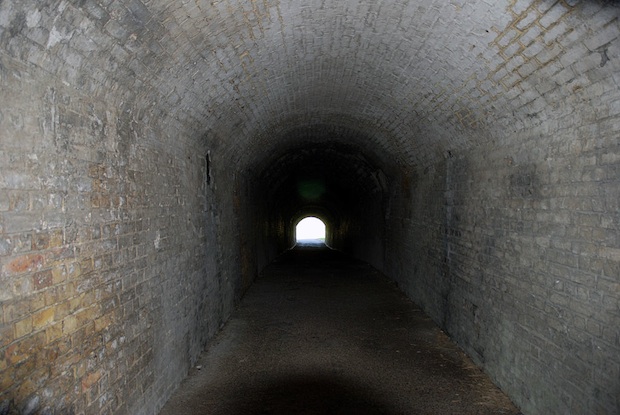Bombarded with news stories of gun violence, and racist and Islamophobic rhetoric from politicians, I’ve begun to notice a numbness overtaking me. It’s a natural response to move away from pain, as from a hot flame. But even when I turn off the radio, or avoid reading official news sources, the pain of the world trickles into my social media feeds. Ideally, I want this pain to move me to act for change, but have begun to feel overwhelmed, to shut down.
According to Dr. Joan Cook at Yale University, those of us who witness news of the traumatic events unfolding in the world are beginning to experience something called “compassion fatigue” (a term first used to describe how nurses get worn down by daily hospital emergencies). In her recent article in Time magazine, Cook explains:
We may feel depressed or hopeless. Our views may become pessimistic, and we may believe that the world is primarily or solely a dangerous place and that we have little power or control to impact it, stay safe and keep our loved ones out of harm’s way. We essentially become “too tired to care.”
Media reports of local and global tragedies can help us stay informed, and think about how to protect ourselves. But they also can burn traumatizing imagery into our minds, leading to depression, feelings of helplessness, and increased stress and isolation. When this happens, we lose our capacity to constructively address the underlying causes of oppression and violence in the world. More disturbingly, when our capacity to feel pain diminishes, so does our capacity to feel joy. We close ourselves off to each other, to love, to the natural world – exactly when we most need access to these resources.
During these dark days we forget the world is, for the most part, a good place and we are mostly safe. When we watch breaking news, before any real analysis has happened, we hear reporters’ unthinking reactivity, and ideological parroting. If we interpret acts of destruction before the victims have been buried, before we’ve mourned the loss of life, we learn to fear and distrust other people. We get hit with the same terrible story over and over again, and eventually lose our capacity to respond with either heartbreak or hope. For these very reasons, it is more urgent than ever we do not succumb to compassion fatigue, and instead preserve our capacity to respond thoughtfully and compassionately to those around us.
What can we do to resist becoming numb to the pain of the world, and to each other?
Next time tragedy strikes, as it inevitably will, it is incumbent on us to honor our limits. The best way to do this is to temporarily turn down, or even turn off the news, knowing we will engage again at some later point. In any case, we must try to avoid becoming mired in trauma and overwhelm. We need to let the protective numbness around our hearts thaw before it overtakes us. For some people this means taking time to sit with our feelings of sadness and fear. For others it means turning to poetry, nature, prayer or one another. As we access these inner and outer resources, we regain our capacity for resilience and self-compassion. Directing compassion toward ourselves, we can again remember the world is filled with compassionate people like us, and is on the whole, a good place.
In this season of darkness, it is no surprise we fill our calendars with festivals of light. According to Rabbi Laura Geller, the real miracle of the Jewish festival of light, Hanukkah, is not that the oil lasted an additional seven days, but that our ancestors chose to light the little bit of oil they found at all, not knowing whether or not it would last long enough to complete the rededication of their desecrated Temple. The miracle was that they took a risk, a leap of faith, even though they were not sure they would succeed. They chose, even in this darkest of times, to create their own light. So we must illuminate this growing darkness and affirm our faith that the world will once more fill with warmth and light.
We can only engage in the world again as agents of healing with a heart that feels. It is up to us to find ways to keep our hearts open, and risk shining our light into this uncertain world.

Rabbi Adam Lavitt is a spiritual leader, educator, and writer living in Philadelphia, where he serves as the campus rabbi at Swarthmore College. He was ordained at the Rabbinical School of Hebrew College, where he also received a Master?s in Jewish Education, and a Certificate in Pastoral Care. He has been a Liturgist in Residence at the National Havurah Institute, and a CLAL Rabbis Without Borders Fellow.

